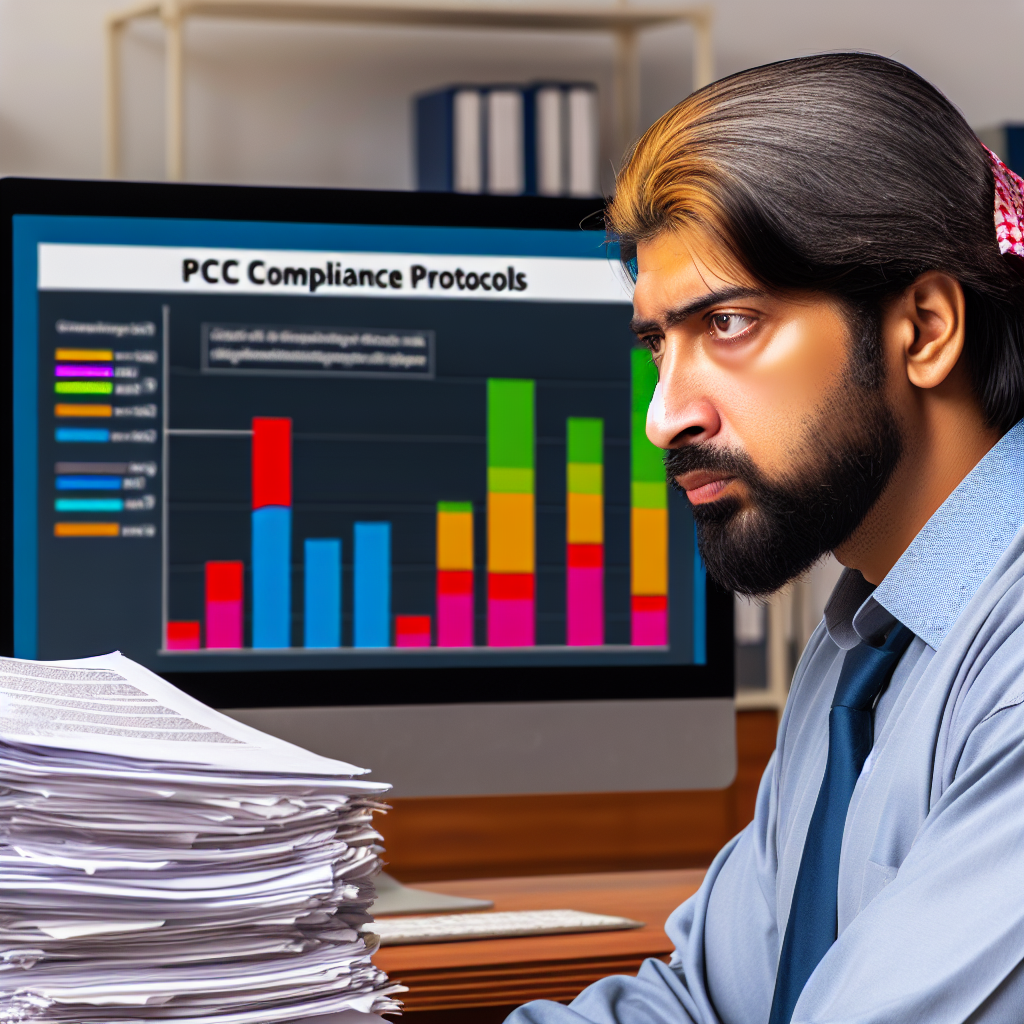Introduction
An IT Compliance Analyst plays a crucial role in ensuring that organizations adhere to regulatory requirements and industry standards.
Definition of an IT Compliance Analyst
An IT Compliance Analyst is responsible for assessing, monitoring, and enforcing compliance with laws, regulations, and policies related to IT systems.
Importance of IT Compliance Analyst in Organizations
- Ensuring Regulatory Compliance: IT Compliance Analysts help organizations meet legal and regulatory requirements to avoid penalties and fines.
- Mitigating Risks: By implementing and enforcing compliance policies, these analysts help organizations reduce the risk of data breaches and security incidents.
- Enhancing Reputation: Maintaining compliance builds trust with customers, partners, and stakeholders, enhancing the organization’s reputation in the market.
- Supporting Business Goals: IT Compliance Analysts align compliance efforts with business objectives to enable growth and sustainability.
- Driving Efficiency: By streamlining processes and documentation, these analysts help organizations operate more efficiently and effectively.
- Promoting Accountability: IT Compliance Analysts hold employees accountable for following policies and procedures, fostering a culture of responsibility.
- Facilitating Audits: Analysts prepare organizations for audits by ensuring all necessary documentation and evidence of compliance are readily available.
IT Compliance Analysts are essential players in maintaining the integrity, security, and success of organizations in a rapidly evolving IT landscape.
Pros of Being an IT Compliance Analyst
As an IT Compliance Analyst, there are several advantages that come with the role.
Let’s explore some of the key pros:
- High Demand for IT Compliance Analysts
- Companies across various industries are increasingly focusing on compliance and regulatory requirements, leading to a high demand for skilled IT Compliance Analysts.
- Competitive Salary and Benefits
- IT Compliance Analysts are often compensated well for their expertise and skills, with competitive salaries and attractive benefits packages.
- Opportunity for Career Growth and Advancement
- IT Compliance Analysts have the potential to advance their careers within organizations, taking on more senior roles and responsibilities over time.
These pros highlight the positive aspects of pursuing a career as an IT Compliance Analyst. The combination of high demand, competitive compensation, and opportunities for growth make it an appealing choice for professionals in the field.
Cons of being an IT Compliance Analyst
Working as an IT Compliance Analyst certainly has its challenges and drawbacks.
Let’s delve into some of the cons of this role:
- High level of responsibility and pressure
- Need for continuous learning and staying updated with regulations
- Potential for long work hours and stress
As an IT Compliance Analyst, you are entrusted with ensuring that your organization adheres to all relevant regulations and standards.
This comes with a high level of responsibility, as any compliance failures could have serious consequences for the company.
Moreover, the pressure to maintain compliance can be intense, especially in highly regulated industries such as finance or healthcare.
Being responsible for the organization’s compliance efforts can be overwhelming at times.
Regulations and compliance requirements are constantly evolving, making it essential for IT Compliance Analysts to stay updated with the latest changes.
This means dedicating time and effort to continuous learning and professional development.
Keeping abreast of new regulations, industry best practices, and technological advancements can be a significant challenge.
Failure to stay current with compliance standards could put the organization at risk of non-compliance.
Due to the high stakes nature of compliance work, IT Compliance Analysts may find themselves working long hours to meet deadlines and ensure regulatory compliance.
This can lead to increased stress and burnout.
The pressure to prevent compliance violations and the need to juggle multiple tasks and projects can take a toll on an individual’s well-being.
Balancing work demands with personal time can be a real challenge for IT Compliance Analysts.
Transform Your Career Today
Unlock a personalized career strategy that drives real results. Get tailored advice and a roadmap designed just for you.
Start NowWhile being an IT Compliance Analyst can be a rewarding and fulfilling career, it is important to consider the cons of the role before pursuing it.
The high level of responsibility, the need for continuous learning, and the potential for long work hours and stress are all factors to take into account when considering this career path.
Explore Further: Best Practices for Data Encryption and Protection
Skills and Qualifications Required for an IT Compliance Analyst
When it comes to the role of an IT Compliance Analyst, there are certain skills and qualifications that are essential for success in this field.
These professionals play a crucial role in ensuring that an organization meets all necessary regulations and compliance standards.
Here are the key requirements for this role:
- Strong analytical and problem-solving skills
- Knowledge of industry regulations and compliance standards
- Technical skills in IT and cybersecurity
Strong Analytical and Problem-Solving Skills
One of the most important skills for an IT Compliance Analyst is the ability to analyze complex data and situations.
These professionals must be able to identify potential risks and develop solutions to address them effectively.
Strong analytical skills are essential for interpreting regulatory requirements and implementing compliance measures.
Knowledge of Industry Regulations and Compliance Standards
An IT Compliance Analyst must have a deep understanding of industry-specific regulations and compliance standards.
This includes knowledge of data privacy laws, cybersecurity regulations, and industry-specific guidelines.
Staying up to date on changing regulations is crucial for ensuring that an organization remains compliant at all times.
Technical Skills in IT and Cybersecurity
Given the evolving nature of technology, IT Compliance Analysts must have a solid foundation in IT and cybersecurity.
Proficiency in areas such as network security, data encryption, and vulnerability management is essential for implementing effective compliance measures.
These professionals should also have basic programming knowledge to assess and mitigate security risks.
Overall, an IT Compliance Analyst plays a critical role in safeguarding an organization’s data and infrastructure.
By possessing the right skills and qualifications, these professionals can help ensure that the organization operates in accordance with regulatory requirements and industry best practices.
Gain More Insights: Implementing Real-Time Data Warehousing Solutions
Training and Certifications for IT Compliance Analysts
IT Compliance Analysts need to have the right training and certifications to excel in their role.
Showcase Your Business Today
Reach thousands of readers actively exploring professional services. Publish your business profile and grow your audience now.
Publish NowHere are some of the key certifications that can enhance their skills:
- Certified Information Systems Auditor (CISA): This certification validates an individual’s ability to assess vulnerabilities, report on compliance, and institute controls within an enterprise.
- Certified Information Security Manager (CISM): CISM certification demonstrates expertise in information security governance, risk management, and compliance.
- Certified in Risk and Information Systems Controls (CRISC): CRISC certification focuses on assessing and managing IT risks in alignment with business objectives.
These certifications not only provide IT Compliance Analysts with in-depth knowledge but also establish credibility in the field.
Employers often seek candidates with these certifications to ensure compliance standards are met within their organizations.
Explore Further: How to Create an Effective IT Audit Plan

Typical daily tasks and responsibilities of an IT Compliance Analyst:
Reviewing and analyzing IT policies and procedures.
Ensuring compliance with laws and regulations.
Assessing risks associated with non-compliance.
Developing strategies to address compliance issues.
Collaborating with IT teams to implement compliance measures.
Conducting audits and risk assessments:
Performing regular audits of IT systems and processes.
Identifying and assessing potential risks to compliance.
Developing risk assessment frameworks and methodologies.
Implementing controls to mitigate identified risks.
Documenting audit findings and recommendations for improvement.
Developing and implementing compliance policies and procedures:
Researching regulatory requirements and industry best practices.
Creating policies and procedures to ensure compliance.
Implementing training programs for staff on compliance measures.
Updating policies and procedures based on changing regulations.
Ensuring alignment with organizational goals and strategies.
Monitoring and reporting on compliance issues:
Using software tools to monitor compliance metrics.
Tracking and documenting adherence to compliance standards.
Generating reports on compliance status and trends.
Communicating findings to relevant stakeholders.
Implementing corrective actions to address non-compliance issues.
Uncover the Details: Troubleshooting Tips for Application Support Analysts
Career Outlook and Job Prospects for IT Compliance Analysts
IT Compliance Analysts have a promising career outlook with a steady demand across industries.
These professionals play a critical role in ensuring that organizations adhere to regulatory requirements.
As companies increasingly rely on technology, the need for IT Compliance Analysts continues to grow.
IT Compliance Analysts are integral to safeguarding sensitive data and maintaining security standards.
With the rise in cyber threats, the role of IT Compliance Analysts is becoming more vital.
Organizations are recognizing the importance of compliance in mitigating risks and avoiding penalties.
Overall, the job prospects for IT Compliance Analysts are expected to remain strong in the foreseeable future.
Growth in Demand for IT Compliance Analysts Across Industries
Various sectors, including finance, healthcare, and technology, require the expertise of IT Compliance Analysts.
Strict regulations, such as GDPR and HIPAA, have made compliance a top priority for businesses.
The increase in online transactions and data storage has amplified the demand for IT Compliance Analysts.
Non-compliance can result in severe consequences, making these professionals indispensable.
As technology advances, so does the complexity of compliance requirements, driving the need for IT Compliance Analysts.
The evolution of digital tools and platforms further underscores the growth in demand for these professionals.
Overall, IT Compliance Analysts are poised to experience continued growth opportunities across diverse industries.
Opportunities for Specialization in Specific Areas of Compliance
IT Compliance Analysts have the chance to specialize in various aspects of compliance based on their interests.
Showcase Your Business Today
Reach thousands of readers actively exploring professional services. Publish your business profile and grow your audience now.
Publish NowSpecializations can range from data privacy and cybersecurity to regulatory compliance and risk management.
Professionals can enhance their skills by focusing on specific compliance frameworks and best practices.
Specialized knowledge allows IT Compliance Analysts to provide targeted solutions to organizations’ compliance needs.
By becoming experts in specific compliance areas, professionals can differentiate themselves in the job market.
Specialization also opens up opportunities for career advancement and recognition within the compliance field.
Overall, IT Compliance Analysts have the flexibility to tailor their expertise to meet industry-specific compliance requirements.
Potential for Advancement into Management Roles
IT Compliance Analysts have the potential to progress into leadership and management positions within organizations.
With experience and a strong track record in compliance, professionals can transition into managerial roles.
Advancement opportunities may include Compliance Manager, Compliance Director, or Chief Compliance Officer positions.
Leadership roles allow IT Compliance Analysts to oversee compliance programs and strategies at a higher level.
Moving into management positions also involves mentoring junior staff and shaping organizational compliance culture.
Advanced roles offer greater responsibility, visibility, and influence in shaping compliance initiatives.
Overall, IT Compliance Analysts can advance into management roles that contribute to overall compliance strategy and governance.
Pros and Cons of Being an IT Compliance Analyst
Being an IT Compliance Analyst has its benefits and challenges.
One must consider personal strengths and career goals before pursuing this role.
Recap of the Pros and Cons of Being an IT Compliance Analyst
Pros include job security, competitive salary, and opportunities for growth.
Cons may involve high pressure, complex regulations, and continuous learning demands.
Importance of Considering Personal Strengths and Career Goals
It’s crucial to assess if the role aligns with your skills, interests, and long-term objectives.
By evaluating these factors, you can make an informed decision about pursuing this career.
Additional Resources
The Clean Air Act and the Economy | US EPA
Careers with DFS | Department of Financial Services
[E-Books for Sale]
The Big Book of 500 High-Paying Jobs in America: Unlock Your Earning Potential
$19.99 • 500 High-Paying Jobs • 330 pages
Explore 500 high-paying jobs in America and learn how to boost your career, earn more, and achieve success!
See All 500 High-Paying Jobs of this E-Book
1001 Professions Without a Degree: High-Paying American Jobs You Can Start Now
$19.99 • 1001 Professions Without a Degree • 174 pages
Discover 1001 high-paying jobs without a degree! Unlock career tips, skills, and success strategies for just $19.99!




